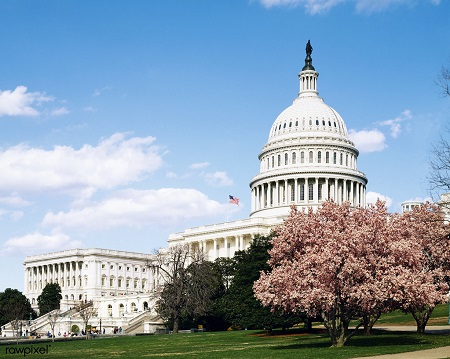
A bipartisan coalition of lawmakers continues to make slow but steady progress on legislation that would make federal broadband grants tax exempt, providing significant relief for big and small companies alike trying to bridge America’s stubborn digital divide.
U.S. Representatives Jimmy Panetta (D-CA) and Mike Kelly (R-PA) and Senators Mark Warner (D-VA) and Jerry Moran (R-KS) recently reintroduced the Broadband Grant Tax Treatment Act (BGTTA) in both the House and Senate. The bill would amend IRS code to ensure that funding for broadband deployment from the Infrastructure Investment and Jobs Act (IIJA) and the American Rescue Plan Act (ARPA) will not be considered taxable income.
“We have made significant strides to ensure that access to high-speed internet is available to more Americans than ever,” Senator Warner said in a statement. “But taxing broadband investment awards diminishes our efforts. This legislation ensures that individuals and businesses are able to reap the benefits of every dollar set aside for broadband expansion and deployment so that we can accomplish our goal of bringing reliable broadband to every corner of Virginia.”
The exemptions included in the bill would also apply retroactively to any qualified grant amounts received in 2021 and 2022.

During past U.S. government broadband grant programs, such as the (Broadband Technology Opportunities Program) BTOP and (Broadband Initiatives Program) BIP grants in 2010, the IRS had the authority to unilaterally exempt some grants from taxation.
That changed in 2018 with the Trump Tax Cuts and Jobs Act (TCJA), which required that broadband grants be treated as taxable income, removing authority for IRS discretion in the matter. That legislation was pushed through with minimal hearings or consideration.
As a result, telecom industry watchers have been warning for years that upwards of 21 percent of new grants would need to be paid back to the United States government in the form of taxation, complicating project financing and scale.
Last year’s attempt at reform, the Broadband Grant Tax Treatment Act failed to gain traction in a Congress that has prioritized tech policy initiatives like the crusade to ban TikTok (while not proposing anything serious on the many privacy concerns from other tech companies). Efforts to pass the bill in this incarnation of Congress could be complicated by Republican control of the house, given reforms that would roll back certain aspects of the Trump-era tax cut.
Still, some Republican Senators that supported the Trump tax cuts are sponsoring this newest incarnation, including bill sponsor Jerry Moran (R-KS) and co-sponsor Roger Wicker (R-MS).
A Rare Coalition Of Industry Large And Small
Providers large and small all agree that making IIJA, ARP, and Tribal Broadband Connectivity Fund grants tax-exempt would dramatically boost efforts to expand access to affordable broadband by ensuring the entirety of the funds are made available for deployment.
Despite this, three years of wrangling has left policymakers with little to show for their efforts.

Hoping to accelerate movement on the legislation, a coalition of large and small telecom associations wrote a letter to lawmakers urging adoption of the new law. USTelecom, TIA, CTIA, NTCA, CCA, and WIA all argued the taxation, combined with inflation and supply chain issues, could limit the intended reach of an historic round of broadband funding.
There’s some irony at play. Companies like AT&T — the primary backer of US Telecom, lobbied heavily for 2018’s TCJA, which provided the company upwards of $42 billion in tax breaks. Shortly after receiving the massive influx in tax relief, AT&T was widely criticized for laying off more than 50,000 employees in a series of costly, bungled media acquisitions.
Now, under the umbrella of US Telecom, AT&T and other major providers find themselves looking to fix grant taxation problems created by the Trump corporate tax cuts they heavily lobbied for.
“As providers begin these strategic budgetary assessments it is clear the tax on broadband grants stands as a major limiting factor in the effectiveness and reach of each project and will result in fewer broadband connections,” US Telecom wrote.
Groups like the NTCA have consistently pushed the government to reverse course. NTCA represents many cooperatives that may be harmed by the tax implications despite being nonprofit due to subsidiaries and partnerships that could be taxed under the current tax laws.
“We are grateful that Congress committed tens of billions of dollars to broadband deployment grants through recent bills seeking to help close the digital divide in our country,” NTCA CEO Shirley Bloomfield said in a statement. “But taxing broadband grants – requiring recipients to pay back to the government a portion of what they receive from the government – will dramatically reduce the impact of these programs and likely leave the hardest-to-reach communities without essential connectivity for even longer.”
Multiple Legislative Reform Efforts Could Complicate Proceedings
With Congress out of session, supporters of the tax reform proposal could be waiting a while. Congress is also debating several other bills that could impact IIJA/BEAD funding like the Accurate Map for Broadband Investment Act, which would prevent no more than 20 percent of funding from flowing until the FCC cleans up its act on mapping.
Another recently-proposed bill, the the Network Equipment Transparency (NET) Act – introduced by Senators Jon Tester (D-MT), John Hickenlooper (D-CO), Shelley Moore Capito (R-WV) and Jerry Moran (R-KS) – would place the FCC in charge of "identifying and addressing any supply chain issues that might delay broadband buildouts" according to a press release.

There remains time to get things right. BEAD might begin to be distributed to ISPs at the end of 2024, and perhaps longer given the significant inaccuracies of the FCC broadband data that are slowly being corrected. Fixing those errors has been a time-consuming and deeply-flawed process of stakeholder challenges, a process municipalities say has proven to be a convoluted mess.
The NTIA says it won’t begin allocating the $42.5 billion in BEAD program grants until June 30, though the money will not flow until 2024 likely and then states will still have to redistribute it via their state legislative processes, giving those supporting the new tax-exemption bill several months to try and get the Broadband Grant Tax Treatment Act over the finish line.
Header image courtesy of Legal 9, Attribution-ShareAlike 3.0 Unported (CC BY-SA 3.0)
Inline image of U.S. Capitol building courtesy of Carol M. Highsmith's Library of Congress Collection on Flickr, Attribution 2.0 Generic (CC BY 2.0)
Inline image of BEAD logo courtesy of the National Digitial Inclusion Alliance







